Please note, this is general advice only. If there’s any doubt whatsoever, contact your veterinarian, or a veterinary ER if you can for guidance specific to your situation.
Emergency clinicsDue to staffing issues around the country, many veterinary emergency clinics are at capacity. It’s a good idea to call first, or call your pet’s usual vet for advice. ER Vets of Western Washington maintains a periodic status update on Instagram and Facebook. Signs of heat stress and stroke in dogs and catsNote that some animals are at higher risk: brachycephalics (short-muzzles, possibly with breathing issues), thick-coated, elderly, over-active young, obese, or dehydrated animals may require care sooner than others.
Some signs may be your pets normal behavior (ignoring the owner comes to mind). What’s important here is to note what is unusual or abnormal for your animal. Cooling strategiesTake your pet for a ride in a car with air conditioning. Businesses such as pet stores often allow pets in while shopping. Wet them down with cool water and allow the water to evaporate for cooling to occur. Blow fans across them, alcohol wipes on the pads and armpits/groin. Do not go for walks, hikes, exercise. Signs in horses
Strategies for horses
Signs for chickens
See the infographic to the right, as well. |
Useful Infographics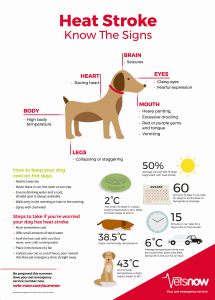 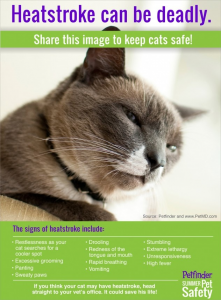 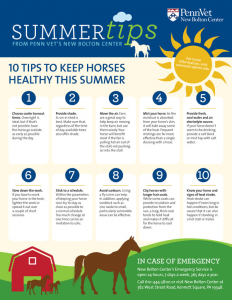 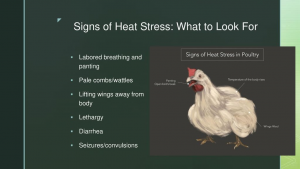 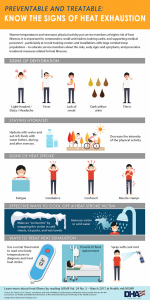 |
More Tips for Keeping Pets Cool
Ameli Cyr, CVT/LVT, WASART volunteer
- Popsicles! Dogs/cats love ice with a little wet food or the juice from canned meats (canned in water! Not oil!) mixed in. Horses like molasses over ice. If it’s safe for your pet to eat, you can probably mix it with ice or freeze it.
- Dipping cats, chickens, and other critters gently in cool (not icy!) water helps. You may want to blindfold them. Please do so safely and do not injure or stress yourself or the pet.
- If dipping is not an option for your pet, such as bath-hating cats or horses, soak a towel in cool water and use it to wet them by petting them with it or laying it over them. You do NOT have to keep it on them, just make them damp.
- Pet won’t drink water? For horses/etc, put their regular treats in it. You can also try molasses or juiced carrots and add that to their water. For meat-eaters, pick up a can of whatever meat they aren’t allergic to (IN WATER, NOT OIL) and drain the liquid off the can into their water bowl.
- Short-nosed, large, and heavy-coated breeds are extra-susceptible to heat, as are critters with diabetes and other metabolic issues. Take extra care with pets that have tracheal concerns (like laryngeal paralysis), lung concerns, and heart conditions.
- Fans! Make sure your critter has a choice about engaging with the fan. IF it is safe, a cool wet towel can be draped over the fan casing, or ice/water can be placed behind and in front of the fan.
- Put ice in their water! Frozen vegetables, frozen feed, frozen whatever-your-critter-usually-eats also make good treats.
- Pets can get sunburn too! Extra care should be taken for cats/dogs/horses/etc with pink/white skin (usually indicated by white fur). Pet sunscreen does exist. Pet sunglasses also exist, and yes, they’re adorable.
- Consider flymasks and fly sheets. Bonus: flysheets can be wetted to act as a cooling blanket.
- I don’t care if it looks ugly and grows back weird, you can absolutely shave your spitz breed, unless they have unique skin conditions. Your husky/malamute/chow/etc was NOT made for this.
- For backyard birds, consider a sprinkler set up to spritz their enclosure, but make sure they can get away from it if they want to. This can also apply to horses.
- Wading pools are good for all! Birds prefer wading pools only a few inches deep, so they can choose whether or not to soak their underfeathers while getting their feet wet. Please make sure your pets are not at drowning risk and don’t let toddlers or young pets use pools unsupervised.
- You can make an animal too cold! Please don’t apply ice directly to animals, and make sure your animal actually needs care before giving it. Signs of overheating in birds include open-mouth panting and holding their wings away from their body. Signs of overheating in cats include open-mouth panting, redness of the gums, lethargy, vomiting, staggering or lack of coordination, and excessive drooling. Signs in dogs include rapid panting, lack of coordination, red gums, glassy eyes, lethargy, drooling, and vomiting.
